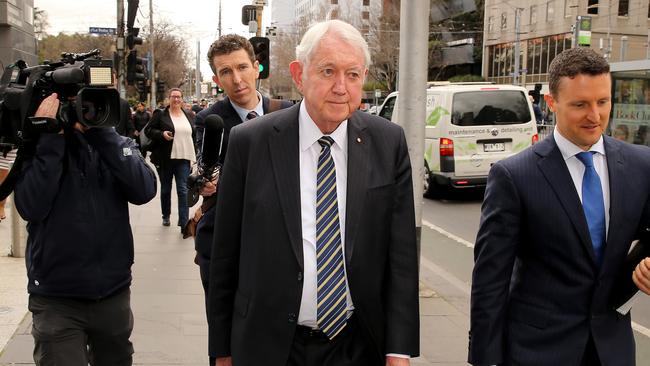AMP kept trustee in the dark on plan to delay shift to MySuper
AMP kept the trustee of its super business in the dark on a plan to drag out the required MySuper transition.

AMP and its complex web of subsidiaries kept the trustee of its superannuation business in the dark over its strategy and plans, including one to drag out the legally-required transition to low-fee funds, to retain up to $86.5 million of future profits, the financial services royal commission has heard.
Under examination yesterday, Rachel Sansom, AMP’s director of regulatory governance who helps run the company’s superannuation trustee division, revealed that the trustee lacked the power to set the level of fees its members were charged, could not set investment return targets, and had trouble getting different arms of the conglomerate to agree to common measurements of investment performance.
In fact, Ms Sansom admitted that any changes to lower fees for the fund’s flagship MySuper products — which occurred for the first time recently in July, just weeks before AMP returned to the royal commission for a second time but five years after the products were introduced — would have to be approved by AMP’s powerful board, as it would affect the profitability of the overall business.
Documents tabled at the royal commission showed internal assessments of AMP’s super products found them to be regularly among the worst performing in the country and that its fees were often among the steepest.
“It is the fact, is it, that the repricing of MySuper requires a decision of the holding company board?” royal commissioner Kenneth Hayne asked.
“Yes, due to the size of it,” Ms Sansom said.
“Not just due to the size of it, but because of the impact on the profitability of the group as a whole?” Mr Hayne asked.
“That’s correct, yes,” Ms Sansom said.
Rick Allert, chairman of AMP Superannuation Limited and NM Superannuation director, said the $120 billion wealth manager considered the issue of gouging of savers invested in cash instruments — who faced negative returns after hefty fees were included — was “closed” after the company recently cut its fees in half to 50 basis points.
Mr Allert, a former chairman of Axa Asia Pacific before its multi-billion merger with AMP in 2011, said these superannuation customers would now see a “marginal” return.
Mr Hodge asked why it was possible that an AMP superannuation member who held cash investments was left worse off than if they had put their savings in an AMP Bank account.
“You would have to ask the client,” Mr Allert said.
Mr Hodge said: “Your position is why are they foolish enough to invest their superannuation with AMP?”
Mr Allert replied: “No that’s not what I’m saying at all.”
Mr Hodge: “But isn’t that your point?”
In most cases, AMP’s trustee, which is required to act in the best interests of members, did not have a say in the running of the business.
Generally, AMP’s trustee collects members’ money, which is then poured into investment-linked policies issued by AMP Life and managed by AMP Capital and AMP Services.
Otherwise, AMP’s other trustee, NM Super, hands over the cash to NMMT Limited for investment services.
The host of related parties decide on the fees, costs and performance targets, which are then given to the trustees to rubber stamp, the royal commission heard.
In other evidence, it emerged that AMP Capital lobbied the boards of AMP Life and AMP Super to lower their investment return targets as they were concerned low interest rates would make it more difficult to achieve the targets, which was approved on multiple occasions by the trustee.
An actuarial report provided to AMP and tabled at the commission proposed a drawn-out period for transitioning member savings out of high-fee legacy products and into low-fee MySuper accounts, in line with 2012 laws where funds were given until 2017 to make the transition.
Documents revealed AMP stood to lose $86.5m worth of profits in fees if it made the transition as early as 2014.


